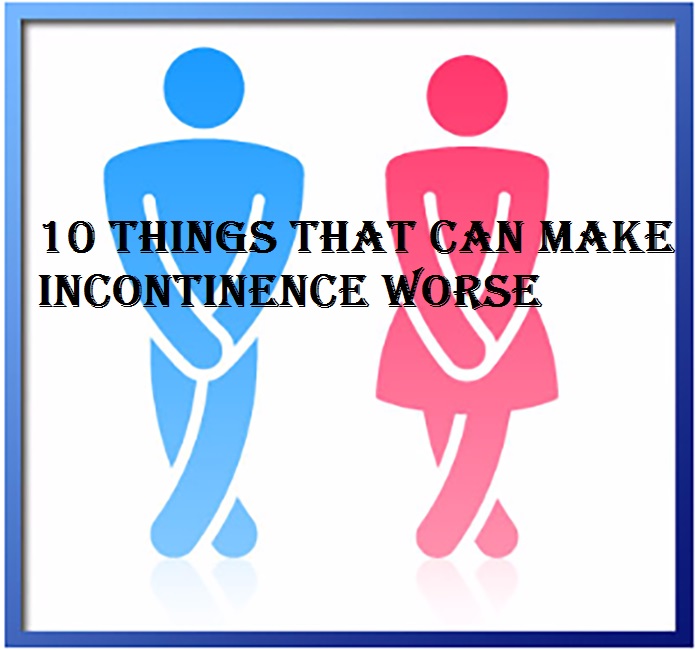Incontinence can happen to anyone, although research shows that it tends to be more common in women than men. Many people will come to rely on products such as Washable Incontinence Pad by Vive as a means of managing incontinence, both urinary and bowel.
The good news is that in most cases, urinary incontinence can be a short term reaction by the body to medication, illness or some other kinds of changes. It should not be an accepted part of aging, and where incontinence is as a result of an illness such as Parkinson’s, there are medications that can help in the control of the bladder.
Here are ten things that can make stress incontinence worse – and how to handle them!
1. Too much or not enough fluid
If you are incontinent, you may decide that the answer lay in reducing how much you drink. This can help but drastically cutting back on fluid is NOT the answer.
Dehydration can also lead to an irritated bladder which adds to the issue of accidental leaking of urine. Cutting back too hard on fluids can also mean constipation which places extra pressure on the bladder and bowel, as well as painful kidney stones.
It is important to get the right balance of fluid intake. There are some suggestions that six to eight glasses of water a day is needed. Start to increase your fluid intake slowly and under guidance from your doctor or nurse.
2. Cut out alcohol
For those suffering from incontinence, alcohol can spell disaster. It is a diuretic which means that you produce more urine making it nigh on impossible to control an overactive bladder. Even cutting your alcohol consumption back to one drink a day can make a big difference.
3. No more caffeine
Coffee and tea, two hot drinks you probably enjoy several times a day, can contribute to stress incontinence.
Like alcohol, they contain caffeine which is both a diuretic and a bladder irritant. Cut back slowly to reduce the impact of headaches and other withdrawal symptoms. And always check the label of decaf options too, as some do contain caffeine.
4. No more hot chocolate
Not even chocolate is safe when it comes to controlling your incontinence! The bad news is that your favourite sugary treat or drink may actually contain caffeine. Hard to believe but check the label – and check labels of chocolate bars too.
5. Cutting down on sugar
Although not as well studied as to the impact of alcohol and caffeine, there is some research that suggests sugar foods and substances can aggravate the bladder. So if you like honey and other foods that contain fructose (natural fruit sugars), you may need to think about cutting down.
6. Fizzy drinks
Fizzy drinks present a double whammy in your attempts to control your bladder – both the caffeine and the carbonation both have an impact on your bladder. Carbonated drinks have been known to aggravate incontinence symptoms. Health professionals are sticking with natural products, such as water.
7. Spicy foods
You might love a hot madras or a spicy Mexican dish, but the bad news is that those spices could be causing problems for your bladder. Scientific research has identified spices as being a common irritant in women.
8. Citrus fruits
Lemons, oranges, limes, tomatoes, grapefruit and so on may be full of vitamins, but they are also acidic. As a result, a high intake of citrus fruits in your diet could be irritating your bladder, exacerbating the need to pee, thus the need for HARTMANN’S incontinence products is still very much needed.
9. Cranberry juice
People suffering from a urinary tract infection (UTI) are often advised to drink cranberry juice to help relieve the symptoms. However, people wrongly assume that when stress incontinence is prevalent, it does the same job but as a matter of fact, cranberry juice can actually make incontinence worse.
10. Medication
There are some medications that can make stress incontinence worse. Certain heart medication, blood-pressure tablets, muscle relaxants, sedatives and so on can make incontinence worse.
This does not mean that you should stop taking any of these medications without the advice of your doctor first but being aware of how they may be affecting you is an important part of balancing the needs of the medication to manage another condition.
Managing incontinence with HARTMANN’S incontinence products can make life a little easier, but there are steps that can be taken to reduce incontinence, or even eliminate it all together.

